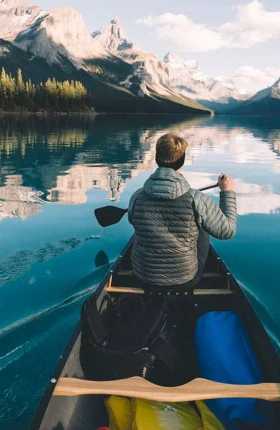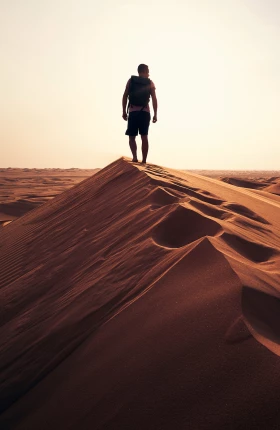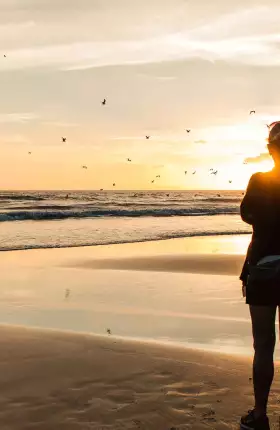What stimulated you to set-up Minimum, your new app?
The climate crisis. In our view it's the biggest existential threat the planet has ever faced, so it's a big old dose of stimulus to try and do something about it. The very encouraging thing is that in the last couple of years we've seen an enormous increase in individuals taking action, particularly around reducing their personal carbon impact. This is awesome, because being carbon neutral is the most impactful thing an individual can do to help save the planet. In fact, if the richest 3% in the world were offsetting just their own emissions it would have an equivalent environmental impact to making every vehicle on the planet electric. We built Minimum to make it as easy and simple as possible for people to be carbon neutral - we wanted to make it effortless.
By calculating your carbon emissions in real-time, Minimum aims to do two things 1) help you to reduce your carbon impact wherever possible by revealing your personal footprint and the best ways to cut-back; 2) allow you to offset all unavoidable emissions through automated contributions, like an added micro-tax on each spend, into highly effective sustainability projects.
Our hope is that Minimum can make living carbon neutral so easy, and so accessible, that it becomes the new normal.
What have been the main challenges of setting-up a new business in the midst of a global pandemic?
Working remotely. In the first months the three co-founders were all living in different places. It's a particularly fluid time for the business, when roles and responsibilities flex as well as wane, often overlap, and priorities can shift. Setting up specific content-focused Zoom sessions with agendas isn't always enough at this stage of the business- sometimes you need to be able to just sit in a room for hours or days and talk things through. Chris, our other co-founder and I all actually moved in together, so now the three of us live and work together - which is pretty intense, but works! Bringing new people into the Minimum family is also trickier when done remotely. We've settled into a nice rhythm now, but more effort is required to embed the right culture when you're not all in the same room, and make sure everyone has the attention they need. Our first investors were also from Silicon Valley - so building a strong relationship with them over Zoom and across time zones has been an interesting experience.
Of the skills you acquired at BCG, which have proved most useful?
How to work as a team under pressure: structuring problems, getting to output, and acknowledging PTO (Predictability, Teaming, and Open Communication). BCG is intense. For most projects you have a complex task and an - often very - limited timeframe to get to an answer. Your toolkit is effectively just a room full of brains. BCG teaches you how to use those brains in the most effective way. That's basically all we try to do every day at Minimum.
Everyone knows that BCG is the best training in the world on how to break down complex problems and turn them into actionable answers. It's very easy to spend a lot of time and effort not moving forward, but BCG has definitely helped us to work rapidly towards output in the most agile way possible. Beyond that it's all about teamwork. On any BCG team you'll have different people with different strengths - you need to figure out what they are and then leverage them; on an intense project you can't afford not to. And this rings true at Minimum too.
Pretty early on we realised that the fastest way for us to run the business into the ground would be to not look after ourselves and each other. When you're working hard it's easy to lose sight of mental health, physical health, and general well-being. We've stolen PTO from BCG and use it as structure to check-in on each other every week. It's probably the most important thing we do as a business.
Oh… and also obsessing over one-line titles (shout-out to Paddy Roche) and spotting double spaces (shout-out to Ian Walsh) in our pitch deck.
What’s your favourite BCG memory?
Our first ever team event with the Consumer Practice. We went to a studio to do an hour of Pilates - it was a wholesome team-building exercise, but boy was it hard. We also learned how competitive Khaled Tawfik is- refusing to give up on an unrelenting deep-squat for what seemed like hours. I'm pretty sure I saw tears in his eyes, but he kept trucking - it was sensational. Chris and I were always pleased to have him leading our Case Teams after that - a true fighter.





